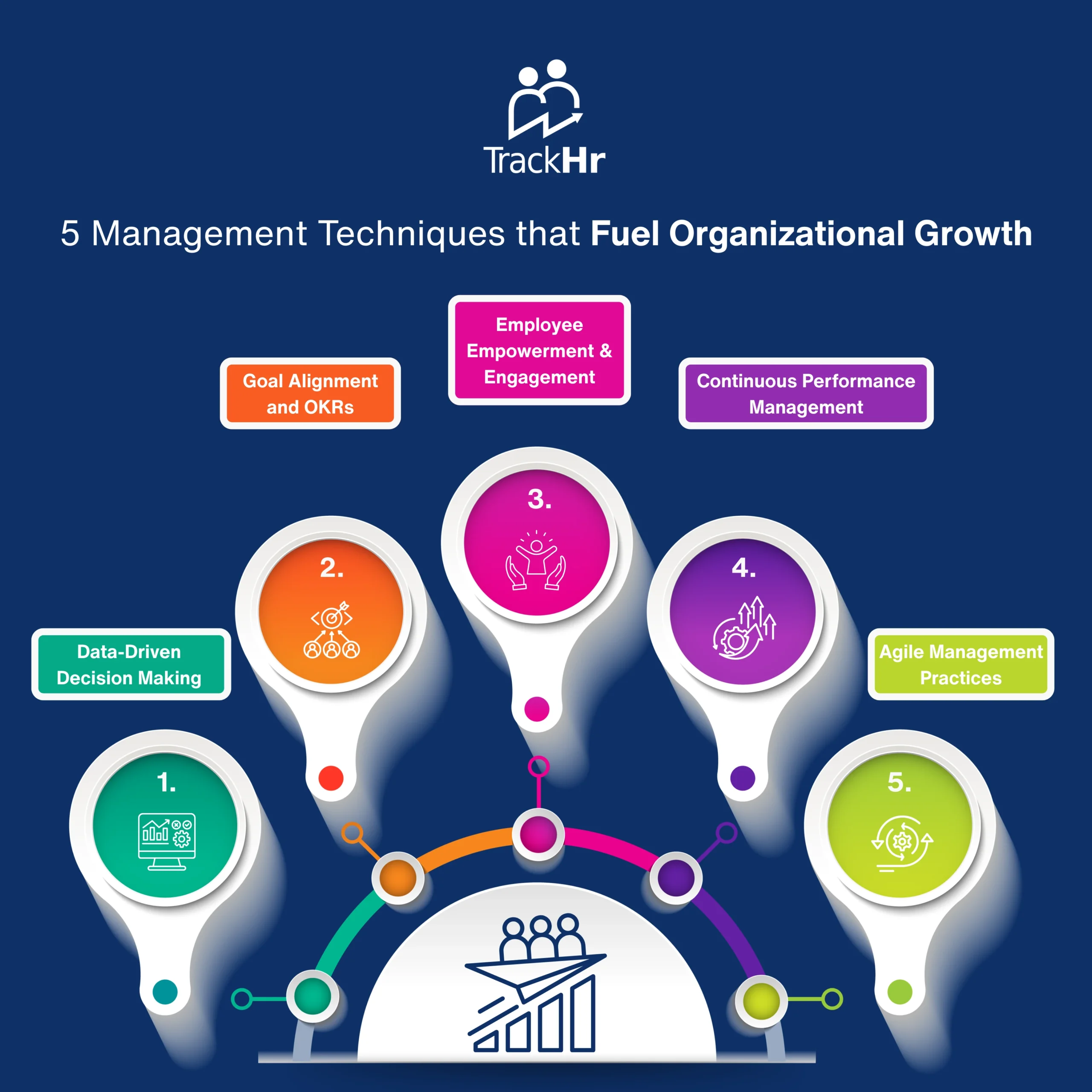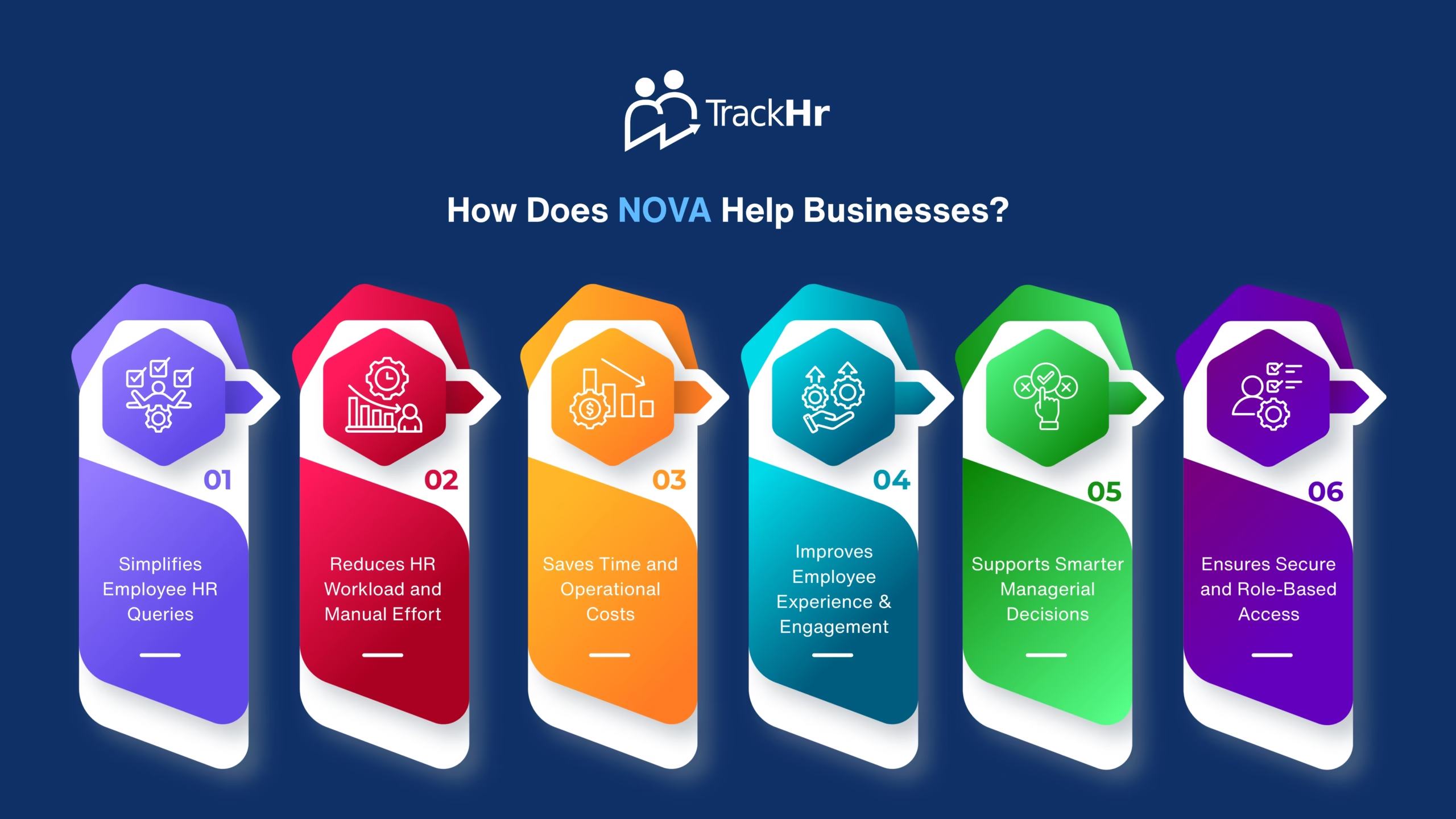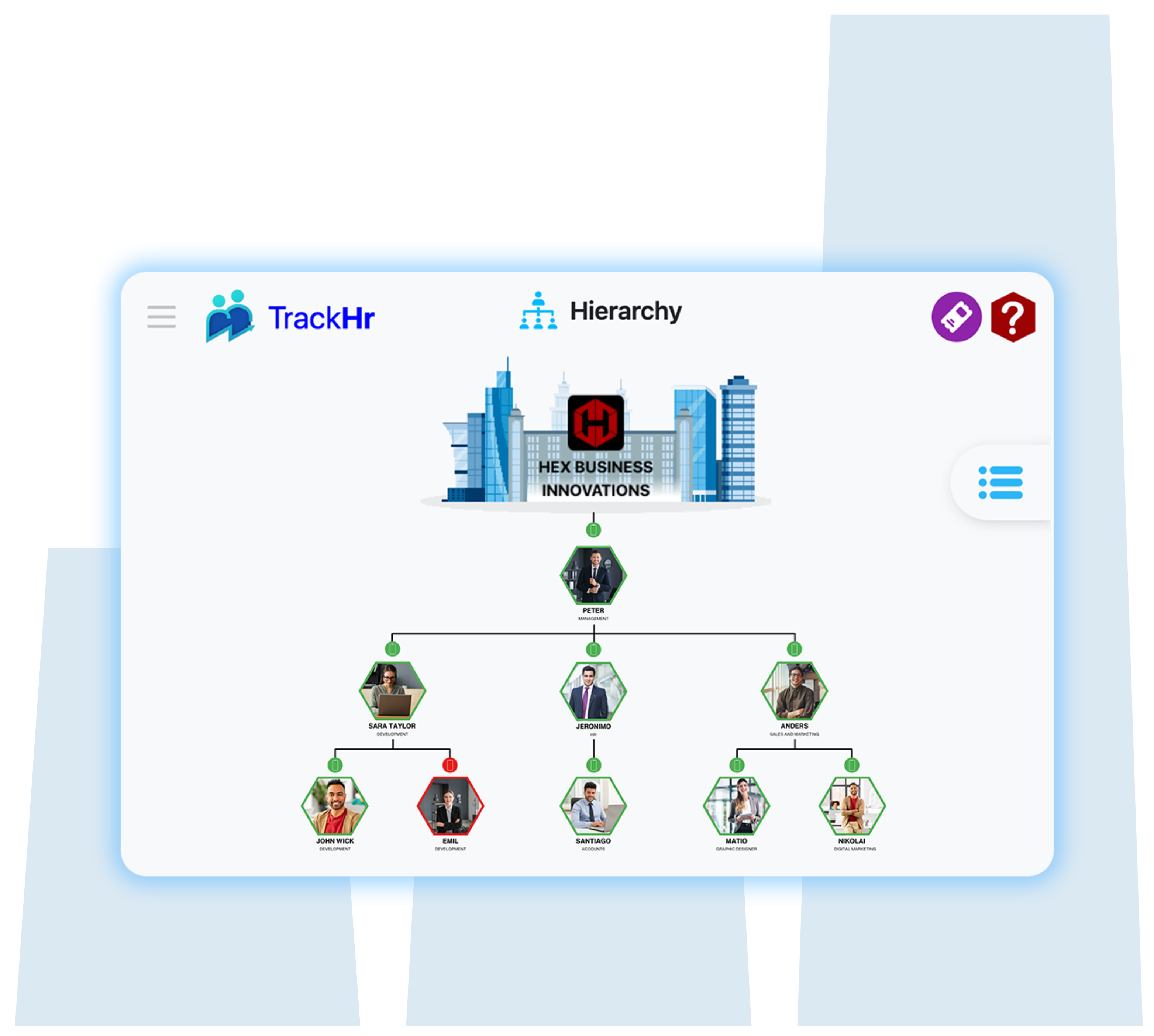Blog
5 Management Techniques that Fuel Organizational Growth
- April 28, 2025
- 9:28 am

Organizational growth doesn’t happen by chance—it’s the result of consistent, smart, and well-executed management. Leaders who adopt effective management techniques create an environment where teams thrive, resources are optimized, and business objectives are met with precision. In this article, we’ll break down five essential management techniques that contribute directly to sustainable business growth.
1. Data-Driven Decision Making
Data should guide your leadership decisions—not assumptions. By tracking key performance indicators (KPIs), analyzing trends, and leveraging business intelligence tools, managers can make informed choices that align with organizational goals.
How It Fuels Growth:
- Improves accuracy in strategic planning
- Identifies opportunities for process optimization
- Minimizes risk and resource wastage
2. Goal Alignment and OKRs
Objectives and Key Results (OKRs) help teams understand how their efforts contribute to larger company goals. Aligning individual and departmental objectives ensures that everyone is moving in the same direction.
How It Fuels Growth:
- Enhances accountability and focus
- Encourages cross-team collaboration
- Tracks measurable progress toward growth
3. Employee Empowerment and Engagement
When employees feel valued and empowered, they contribute more creatively and consistently. Empowerment involves giving employees autonomy, the right tools, and ongoing feedback to do their best work.
How It Fuels Growth:
- Boosts motivation and morale
- Reduces turnover and recruitment costs
- Increases productivity and innovation
4. Continuous Performance Management
Traditional annual reviews are outdated. Modern organizations use continuous feedback and performance tracking to keep performance aligned with goals. Tools like TrackHr make it easier to monitor productivity, time management, and engagement.
How It Fuels Growth:
- Provides real-time performance insights
- Enables timely course corrections
- Strengthens goal-driven accountability
5. Agile Management Practices
Agile methodologies, originally used in software development, are now widely applied in project and team management. Agile emphasizes flexibility, iteration, and constant improvement.
How It Fuels Growth:
- Improves adaptability in changing environments
- Speeds up innovation and delivery cycles
- Encourages a culture of feedback and learning
Conclusion
Sustainable organizational growth is a byproduct of effective management techniques. From data-driven insights to agile leadership and employee empowerment, these five strategies help businesses stay competitive, scalable, and resilient. By adopting these practices—and leveraging performance management tools like TrackHr—leaders can build high-performing teams and drive continuous improvement.
Table of Contents
Exhausted from managing performance management manually?






